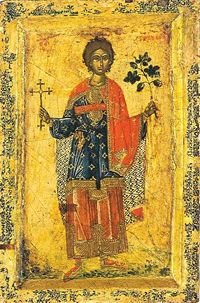Brand New Serbian Online Course
If you have followed my previous posts about using different groups of vocabulary to build up more complicated sentences in Serbian, I am sure you will like my new mini course which focuses on vocabulary (here comes the Christmas discount link). It is called Expanding Serbian Vocabulary - Animals and right now it covers all levels, from the beginner to advanced. You will be using the same sets of words in different contexts and with different grammar structures, starting with the verb to be, to the past tense, Accusative, Genitive, comparisons to conditionals.
This course is perfect for all the students of Serbian at different levels, who would like to expand their vocabulary in different contexts. It is based the vocabulary describing domestic and wild animals
This course is perfect for all the students of Serbian at different levels, who would like to expand their vocabulary in different contexts. It is based the vocabulary describing domestic and wild animals
Serbian Online Course - Structure
Each section consists of:
- intro video lesson with me pronouncing the words
- video lesson without my pronunciation
- video lessons with exercises where you have to supply the missing words
- quizzes and grammar exercises
- speaking practice video with lots of questions and a link where you can record/write your answers

.png)








































